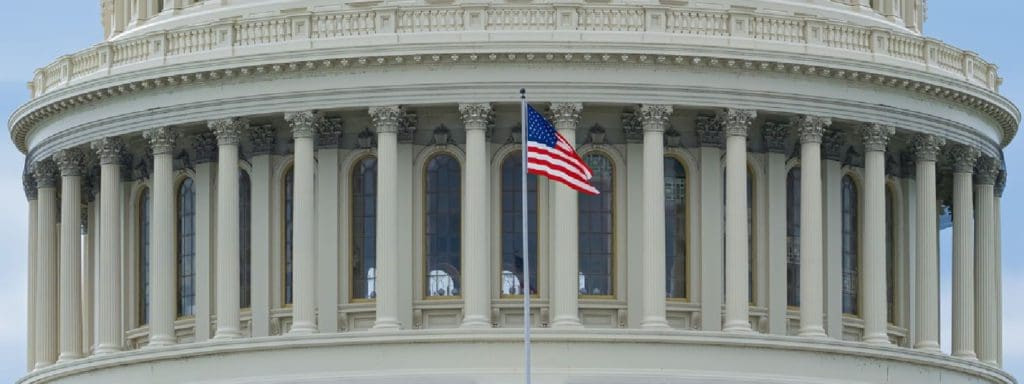Independent Sector recently released polling results reflecting the views of registered voters on a wide range of topics related to nonprofits and public policy. The findings are clear: Americans want Congress to step up for nonprofits, and nonprofits to increase civic engagement in their communities. Here’s voters’ “to-do” lists for Congress and nonprofits.
Voters’ “To-Do” List for Congress
Restore and expand the universal charitable tax deduction
We continue to see broad support for permanently restoring the universal charitable deduction with 85% of Americans expressing support, including 45% expressing strong support. The support is consistent among Democrats (86%) and Republicans (84%). There is higher-than-average support among voters with annual household incomes over $50,000, suburban voters, and voters over the age of 55.
Over three-quarters of Americans (77%) support expanding the universal charitable deduction up to $4,000 per person, as called for in the Universal Giving Pandemic Response and Recovery Act. We see higher-than-average support for expanding this giving incentive among voters with annual household incomes over $50,000, frequent churchgoers, suburban voters, and voters aged 35-54.
Among the nearly two-thirds of Americans (60%) who are very concerned about inflation or experiencing economic stress in the next six months to a year, 49% are planning to donate to a nonprofit less often this year than they did last year, which is significantly higher than the 24% of voters as a whole. Additionally, lower-income Americans are more likely to report planning to donate less often to a nonprofit this year than other income brackets.
These warning signs about inflation’s impact on giving – combined with overwhelming support from voters – make action on charitable giving incentives imperative and urgent. A savvy politician might even prefer to pass this legislation before the November 8 election, rather than waiting until a year-end tax deal. But legislators may miss this critical information unless they hear it from constituents. Please, urge your Senators and Representatives to restore and expand charitable giving today!
Pass the Nonprofit Sector Strength and Partnership Act of 2022
Not only are nonprofits the nation’s third-largest private employer and provider of 10% of the private sector jobs in America, nonprofits also have a deep understanding of the communities they serve. The public recognizes that collaboration between the federal government and nonprofits will create better policies to serve them and their communities. It’s no surprise that a strong majority (84%) of Americans think the government could better solve problems facing local communities if nonprofits had an official seat at the table.
The Nonprofit Sector Strength and Partnership Act will create that seat at the table for nonprofits and enable them to better serve their communities. Not only is there robust public support for a seat at the table, 71% agree that nonprofits and policymakers need to receive regular data about the nonprofit sector workforce, with similar support among Republicans (71%) and Democrats (72%). 7 in 10 voters (70%) support stopping and rethinking the 1023-EZ process for establishing nonprofit organizations with 36% expressing strong support.
It’s time for a better system that prioritizes the needs and expertise of nonprofits and their communities. Sign your organization on to a letter supporting this critical legislation today!
Voters’ “To-Do” List for Nonprofits
Help members of your community vote
Nonprofits are uniquely positioned to engage in nonpartisan civic engagement work, and voters see the value in their participation. 7 in 10 Americans (72%) think it’s a good idea for nonprofits to help members of their community vote, with majority support among Democrats (87%) and Republicans (60%).
Activities like assisting in voter registration updates, providing language assistance, providing election day transportation, and raising awareness of important election dates make an impact when conducted by nonprofits. Recent research shows voters contacted by nonprofits turn out at rates 3 percentage points higher than comparable voters.
The Nonprofit Voter Empowerment Project, an initiative of Independent Sector and Nonprofit VOTE, supports the development and implementation of voter engagement strategies for nonprofits with all levels of experience, expertise, and organizational capacity. It’s not too late to take the pledge and integrate voter engagement practices into your nonprofit’s existing programming!
Advocate for the needs of the communities you serve
A whopping 92% of Americans support nonprofits educating policymakers about the needs of the communities they serve. This support holds across political parties and locations with support from 89% of Republicans, 95% of Democrats, 91% of urban voters, 91% of rural voters, and 92% of suburban voters.
Not only do Americans overwhelmingly see the value in nonprofits’ role as community advocates, but they are more likely to donate to a nonprofit organization when it helped them advocate on an issue they care about (68%), or advocates for an issue impacting their community (64%). This support also holds across party lines — with 65% of Republicans and 71% of Democrats reporting being more likely to donate to a nonprofit organization when it helped them advocate on an issue they care about, and 57% of Republicans and 70% of Democrats reporting being more likely to donate to a nonprofit organization when it advocated for an issue impacting their community.
Nonprofits don’t have to go it alone, 62% of voters are likely to volunteer with a nonprofit to help them make decisions about their policy work, 63% of voters plan to advocate with a nonprofit organization equally as often as last year, and 20% of voters plan to advocate with a nonprofit more often than last year. If you’re not sure where to start or want to continue to grow your advocacy muscle, resources are available about becoming a better advocate and equitable advocacy.
TargetPoint Consulting conducted a survey of 1000 interviews among registered voters nationwide. Interviews were conducted August 30-September 1, 2022 with a margin of error of +/- 3%. The survey was conducted using web-based interviews and was weighted to reflect nationwide demographics, including gender, age, race, education, and the 2020 Presidential vote.
Emily Rogers is manager of policy research at Independent Sector.



